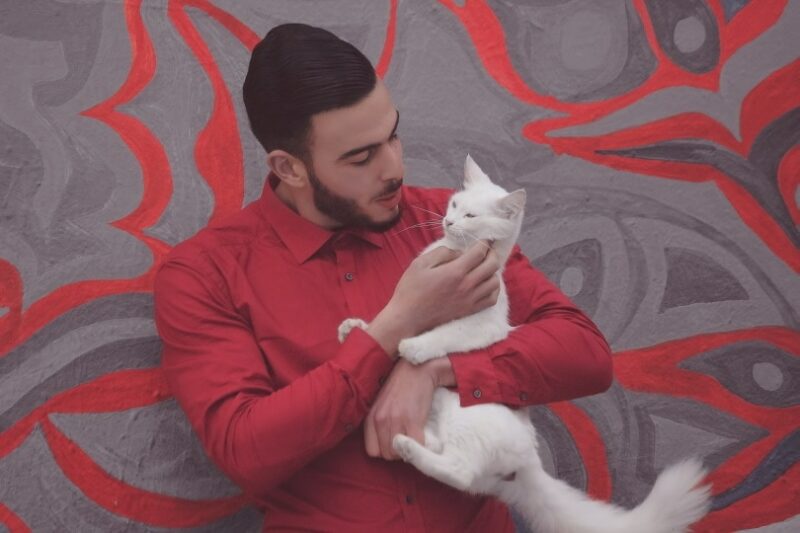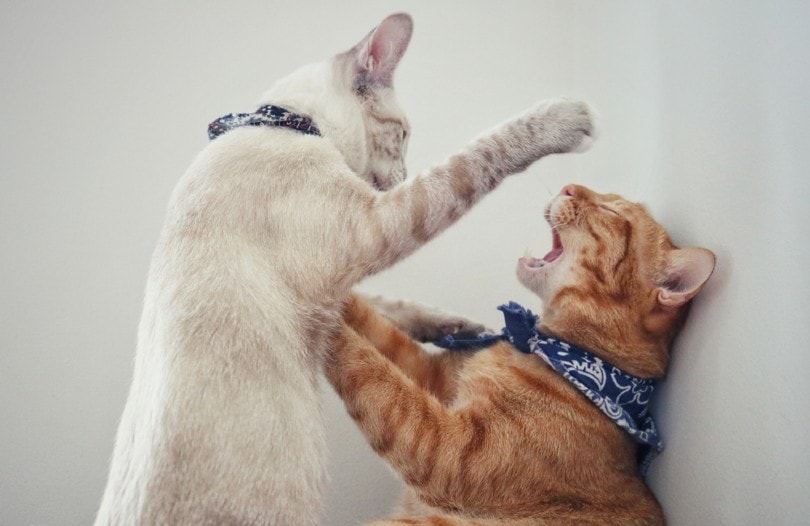Why Your Cat Sucks on Your Fingers? The Surprising Answer!

Updated on
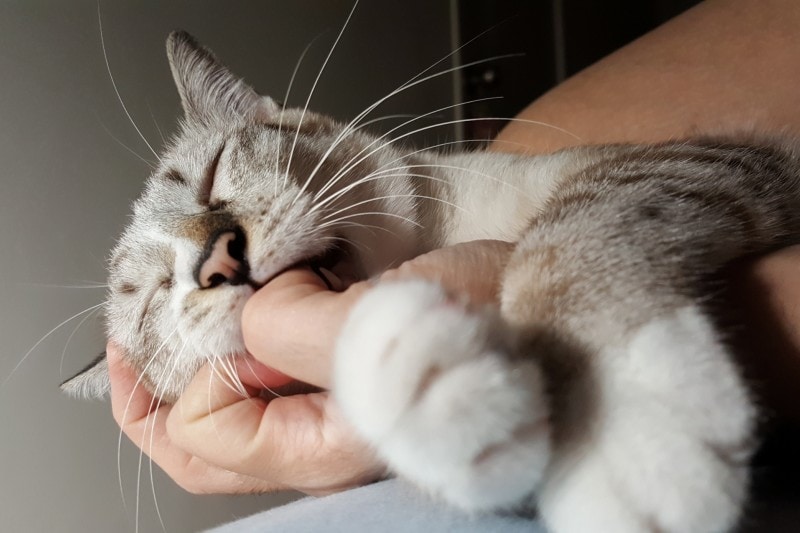
You may find yourself pondering some of your cat’s behaviors; maybe you’re even looking at them now, sucking on your fingers, wondering what your cat might be getting out of this strange exchange. It’s not a kitten anymore, so why would a cat want to suck on your fingers? Is it normal, and should you be worried?
We’ll go through all the possible reasons behind your cat’s behavior and what you might need to do as a result.
The 7 Reasons Why Your Cat Sucks on Your Fingers
1. Instinct
Kittens are born with the instinct to suckle, and it’s an important one. Without it, kittens would die without some extra help encouraging them. However, while it serves a purpose for a kitten, some adults retain this instinct to suck. It could be your fingers or a fuzzy blanket, but there isn’t anything to worry about unless it’s causing health issues for your cat.
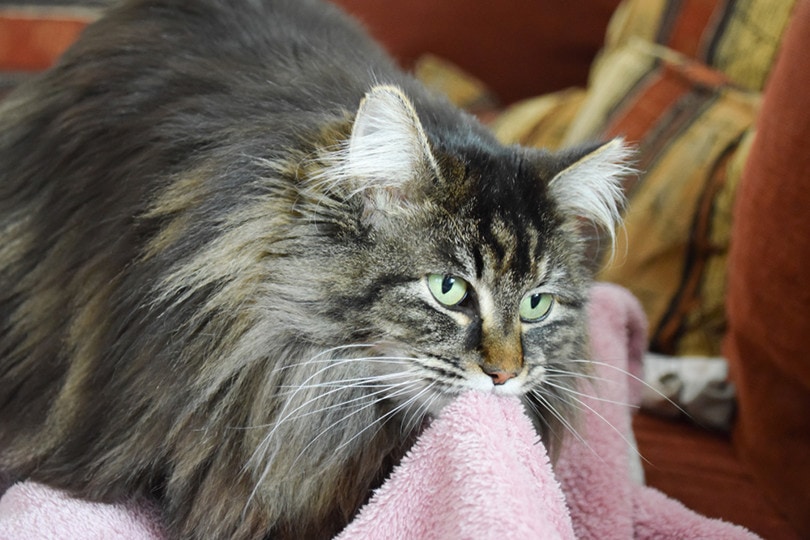
2. Contentment
Sucking is a sign that your kitten or cat is comfortable, and if purring accompanies this action, your cat is showing how happy it really is.
3. Early Weaning
Veterinarians recommend keeping kittens with their mother until at least 8 weeks of age. It’s an integral part of your cat’s social development to support them with their mother and littermates, and it also offers them the opportunity to learn how to be a cat from their mother.
If your kitten is taken away before weaning has begun, they’re likely to retain the sucking instinct into adulthood simply because they didn’t complete their mental and social development associated with weaning at an appropriate age.
Sometimes this is no one’s fault. In the case of orphaned kittens or kittens born to a mother who won’t accept them, they must be bottle-fed by humans. Unfortunately, this results in the same problems, and they might grow into adult cats that suckle your skin or fuzzy blankets their whole life.
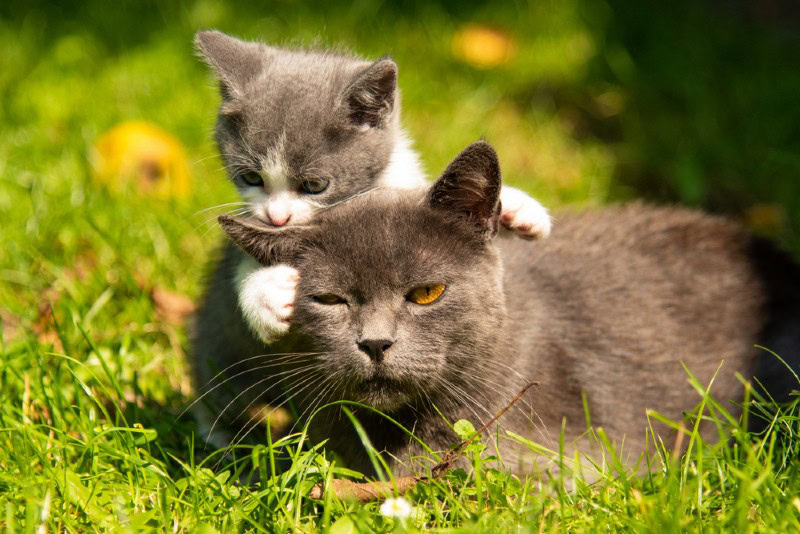
4. Stress
If this behavior is new, it could be that your cat is stressed. Unfortunately, cats can become stressed by several things, so you might need to work it out. Sometimes, it’s something obvious, like a change to their food, you’ve just moved, or a new baby or a pet has been bought into the home.
But it could also be that you’ve moved their litter box slightly, and they’re unhappy about it. Routine and consistency are important to your cat; any deviation could be stressful. Your cat might self-soothe by sucking on your fingers because it reminds them of nursing from their mother.
To help your cat, try and remove the stressor. If you can’t, make time to play with your pet because time with your best friend is always a good remedy for stress.
5. Pain
Cats are experts when it comes to hiding their pain, which makes your job as a pet parent a little bit harder. Be on the lookout¹ for unusual behaviors. Dental pain, for example, might cause them to suckle to soothe their discomfort. Contact your vet to get your cat checked out if you’re concerned.
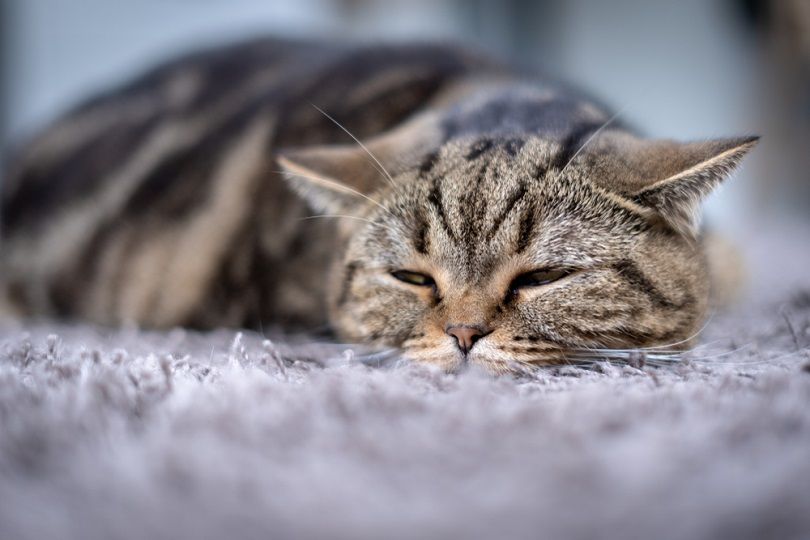
6. Compulsive Behavior
Compulsive behaviors that are very similar to the symptoms humans experience when suffering from obsessive-compulsive disorder (OCD) can develop due to a strong stressor. Sucking or over-grooming are just two examples of compulsive behaviors your cat could exhibit.
If you notice the behavior occurs in response to a stressor, but it doesn’t stop when the stressor is gone or over, the behavior has become more of a habit. Habitual behaviors can lead to life-long issues for your cat, so it’s essential to recognize them early and stop them from becoming compulsive.
7. Type of Breed
Some breeds are more prone to this behavior than others. The Balinese, Siamese, and Tonkinese are more prone to sucking because of their genetics. They are also known as “wool suckers,” and if they fall into this category, you must dissuade them from this behavior because wool can be harmful if it’s ingested. If you find this tricky to achieve, replace the wool fabrics with cat-safe toys.
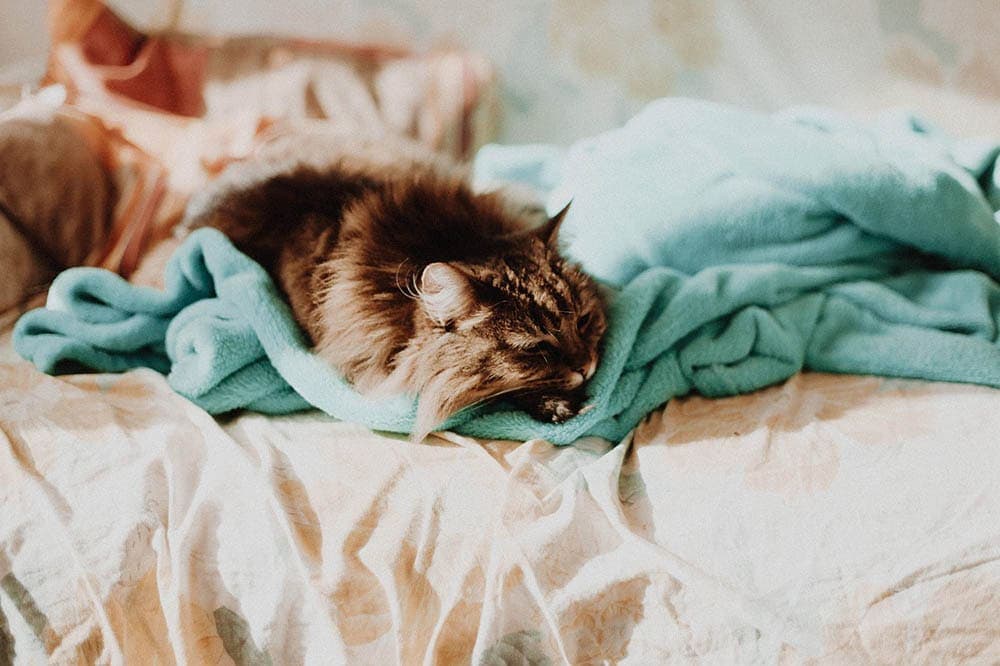
People Also Ask
Should I Let My Cat Suck on My Fingers?
Even though this is a harmless enough activity, it can become a nuisance because your fingers aren’t always going to be free to be sucked on. If you’re trying to work or you’re on your phone, it might be a little awkward, so try and divert your cat’s attention with a toy.
Avoid yelling or getting annoyed with your cat because that will only make them fearful or stressed, which could make the problem worse. Playtime is always a good way to distract your cat in a fun way.
What Do I Do if the Sucking Becomes Compulsive?
Compulsive sucking might result in skin irritation or ingestion of foreign objects, and it’s a good idea to discourage it. If your cat sucks on your fingers, you can distract it with a toy or even get up gently and leave your cat alone. If they then suckle fabrics, take them away or spray them with a cat deterrent.
Another option is to offer your cat a treat when they aren’t sucking and withhold them when they try to suck. You also might find that increasing the amount of fiber in your cat’s diet will help because fiber makes your cat feel fuller for longer, and this might discourage fabric ingestion. Make sure, however, if you’re planning any changes to your cat’s diet to consult your vet first.
Summary
There are various reasons behind a cat wanting to suck on your fingers, and some of them are innocent enough, but it could also be something you will need to act on, like stress-related behavior or a reaction to pain. A notable change in your cat’s behavior should always be taken seriously. Remember, it’s better to go to the vet, and it is nothing, than not go and have there be something wrong.
Featured Image Credit: RJ22, Shutterstock



